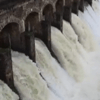Search site

The Thakur's Well

Gangi has set out on a dangerous mission: to fetch water for her sick husband, Jokhu, from the landlord's well.
Yes, it is a dangerous mission. If Gangi is caught while drawing water from the well, she could land in deep trouble.
The Thakur's Well, published in Youthaffairz, is a poor translation of Thakur ka Kuan, a story by Munshi Premchand. The story portrays the ills of the caste system.
Gangi and Jokhu belong to the low-caste community, which has to live on the outskirts of the village; they can't interact with high-caste people. The village has three wells. One well belongs to the landlord, a second is owned by the village merchant, and a third is for the use of Gangi and Jokhu's community. Except for the low-caste people, all the other villagers can freely draw water from the wells belonging to the landlord and the merchant...
Good Afternoon, Ghost!

I am a late riser and wake up around 10 a.m. every day. I read the newspaper headlines first, brush my teeth, and bathe. It is usually past noon when I finally sit down for breakfast!
I am a freelancer and work from home. After breakfast, I sit at my desk, switch on my computer, and do my work. I have the room all to myself, which I share only with Tepi, my cat. Tepi does not bother me. She settles down in her chair and goes to sleep.
Not another creature can enter the room. The room has two doors and two windows, but the doors remain shut all the time. Each window has three sliding panes: two with opaque glass panes and one with a wire mesh to prevent mosquitoes and flies from entering. I slide both opaque glass panes to one side of the window and the wire-meshed pane to the other side. It allows the light to enter but bars any creature from entering.
Tepi has learned to slide open the panels with her paws and can go out whenever she pleases; she doesn't have to request me to open the windows or the doors to let her out...
Water, Water Everywhere!
 As a newspaper reporter, one of my tasks is to report on the amount
of water stored in dam reservoirs. Four reservoirs supply water to
my city. Reporting on the volume of water in these reservoirs is
necessary to reassure people about the availability of enough water
throughout the year.
As a newspaper reporter, one of my tasks is to report on the amount
of water stored in dam reservoirs. Four reservoirs supply water to
my city. Reporting on the volume of water in these reservoirs is
necessary to reassure people about the availability of enough water
throughout the year.
Usually, we measure the volume of water in cubic feet or cubic centimetres. However, these are small units of measurement. For measuring the volume of water in reservoirs, we need large units. These units are usually TMC or MCM. TMC stands for Thousand Million Cubic Feet, and MCM is Million Cubic Metres.
Here is where my troubles begin. Newspapers are fond of using TMC as the unit, whereas the irrigation department's website mentions the water storage levels in MCM. Can you help me figure out how to convert MCM into TMC?
Science Snippets

Here is a random pick of some science news. The science snippets have been compiled from press releases issued by leading universities, scientific institutions, and other sources.
We have included these science snippets only for educational and informational purposes. The stories are aimed at sparking your interest in science. Who knows, the brief stories might inspire you to find answers to questions that have been puzzling or troubling people.
Wherever possible, we will provide links to the press releases at the bottom of each story. Please do read the original press releases for more information.
Latest Stories
Some useful links for your career:
- Union Public Service Commission - www.upsc.gov.in
- IIT-Kharagpur - www.iitkgp.ac.in
- Indian Statistical Institute - www.isical.ac.in
- Indian Institute of Technology Madras - www.iitm.ac.in
- Indian Institute of Management, Ahmedabad - www.iimahd.ernet.in
- Indian Institute of Mass Commission - www.iimc.nic.in
- IIT Bombay - www.iitb.ac.in
- Indian School of Mines, Dhanbad - www.ismdhanbad.ac.in
- Birla Institute of Technology, Ranchi - www.bitmesra.ac.in
- Central Institute of Fisheries Nautical and Engineering Training - www.cifnet.nic.in
- Indian Institute of Information Technology, Allahabad (Deemed University) - www.iiita.ac.in
- Central Marine Fisheries Research Institute, Kochi - www.cmfri.com
- Tata Institute of Social Sciences, Mumbai - www.tiss.edu
